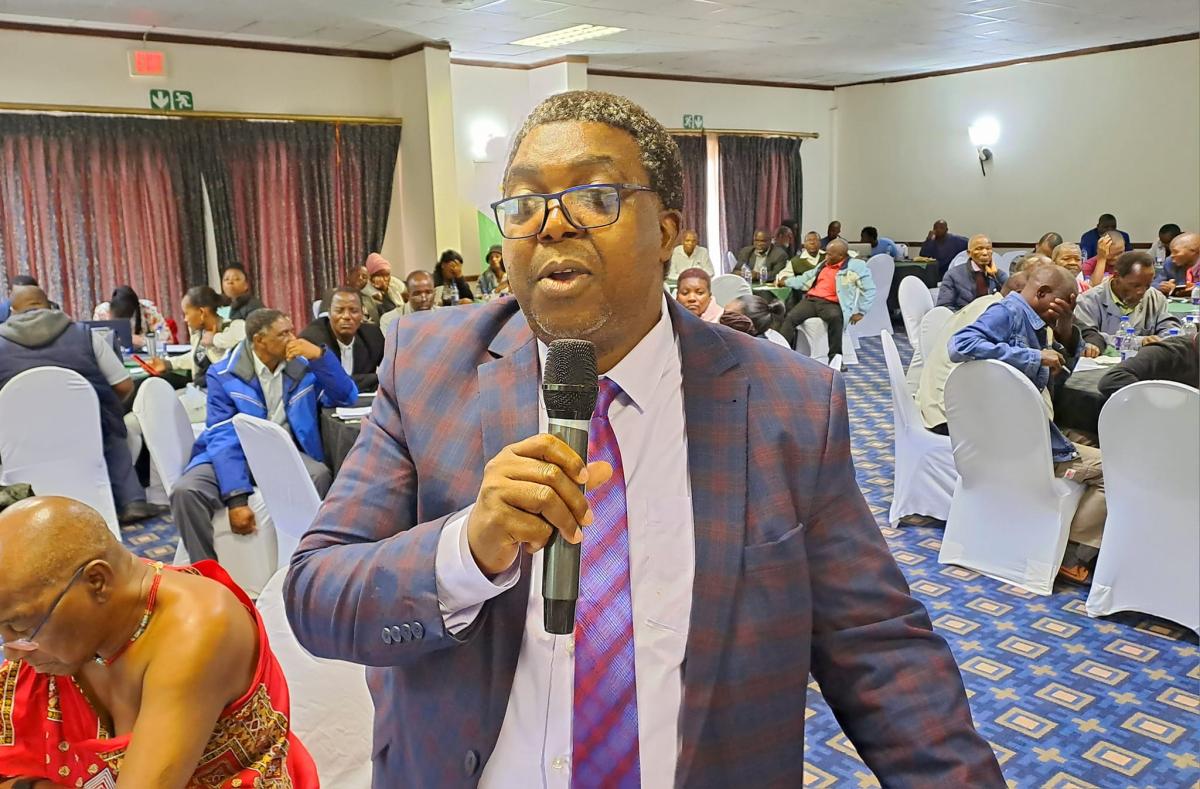CCARDESA Facilitates Workshop on Apiculture for Forest Ecosystems Conservation, Restoration and Sustainable Livelihoods in Eswatini
Attendees commended for quality, insightful presentations.
By Phumelele Mkhonta
EZULWINI, ESWATINI- A rich learning ground! This was the three-day "Apiculture for Forest Ecosystems Conservation, Restoration and Sustainable Livelihoods" workshop which was facilitated by the Centre for Coordination of Agricultural Research and Development for Southern Africa (CCARDESA) in collaboration with the Ministry of Agriculture and the Ministry of Tourism and Environmental Affairs of Eswatini. The workshop discussed pressing matters in beekeeping, forestry, climate change, economics, cultural values, conservation, gender equality, and other matters of same importance.
The workshop, held at the George Hotel and Happy Valley in Ezulwini from March 26 to March 28, 2024, saw experts in different fields from the different countries across Southern Africa including Botswana, Malawi, Mozambique, Lesotho, Tanzania, and Zimbabwe, deliberating on how apiculture can be improved- and improved to commercial scale.
The aforementioned workshop falls under the EU/IFAD funded initiative, CAADP-XP4 programme which focuses on enabling agricultural research and innovation, including extension services, with the potential to mitigate the effects of climate change, and enhance food and nutritional security.
Simply defined, apiculture is the scientific method of rearing honeybees. Often referred to as beekeeping, the trade is the care and management of honeybees for the production of honey and wax.
The main objective of the physical workshop was to outline the operational structure, framework, and standard operating procedures for apiculture programs and activities as this would clearly define the roles, responsibilities, and workflow processes of different officers, departments, and organisations on apiculture technical services and activities for farmers.
The CCARDESA initiative birthed the ‘Apiculture Industry Action Plan 2024’.
During the opening ceremony, the Minister of Agriculture Mandla Tshawuka, who was represented by the Principal Secretary in the Ministry, Mr Sydney Boy Simelane, stressed that for apiculture to be sustainable, environmental health was key, and specific forest resources provide food for the bees.

The PS said in that respect, the Kingdom of Eswatini was blessed with both natural and planted forests, among which are citrus, wattle, acacia, pine and eucalyptus trees- saying the country’s weather conditions were also very conducive for honey production.
“These conditions have made it possible for honey producers to harvest honey three times a year and on average to collectively produce over 35 tonnes of honey annually. This might seem to be a substantial amount, but the country has got potential to produce much more than this. I am encouraging those involved in beekeeping to increase production,” related Simelane.
Discussing the demand for honey, the Principal Secretary revealed that it had been observed that the world’s bee population was being depleted because of deforestation, use of pesticides, herbicides and adoption of monoculture as a result of industrialisation.
“This has increased the worldwide demand for honey. It is countries like ours which must rise up and grab this opportunity with both hands. Eswatini therefore has an opportunity to increase production and supply international honey markets as well.”
Simelane explained that, however, access to export markets requires producers to meet certain standards which require individual identification and registration of apiaries and hives, disease surveillance and monitoring and having a honey residue plan at point of processing.
“Eswatini honey holds a lot of promise in that there are still existing forests ecosystems and citrus trees from which the good honey can still come from. Such honey is without doubt able to compete in any of the local as well as international markets,” said the PS.
CCARDESA to add more value chains in its operations - Executive Director
There will be more focus on certain areas of forestry and agroforestry, livestock, fisheries and aquaculture and value chains by CCARDESA. This information, which may be elating to farmers, was revealed by CCARDESA Executive Director Professor Cliff Dlamini during his presentation. This was at the three-day ‘Apiculture for Forests Ecosystems Conservation, Restoration and Sustainable Livelihoods’ workshop. Prof Dlamini said CCARDESA was in the process of revising its long-term strategy to include under the underrepresented value chains.
Prof Dlamini also highlighted that CCARDESA is currently assisting SADC member states in different matters including food systems resilience, climate change, agricultural productivity and food security and nutrition, through the implementation of regional initiatives namely: AICCRA, APPSA, CAADP-XP4, C-NRM, GCCA+ and FSRP.
The Apiculture workshop was also graced by the presence of the CCARDESA Board Member representing Eswatini as an Environmental Expert, Dr Diana Earnshaw. Expressing her vote of thanks, Dr Earnshaw, highlighted that the presentations made were of high quality and rich in knowledge.
“I am grateful for every participant who made it despite the short notice. I would like to commend the presentations made and from the few that I sat through, I could tell they were of high quality. I have learnt a lot about beekeeping.
“I challenge the Department of Forestry to vouch for the planting of fruit trees and indigenous trees in the ‘Plant a Tree’ campaign. This will ensure that emaSwati’s livelihoods are boosted while planting the trees,” said Earnshaw.
The author is a journalist at the Climate Environment News in Eswatini.

























































